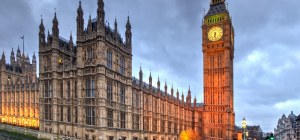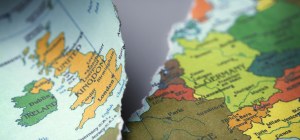39: Great Repeal Bill – Time, time, time… I looked around for my possibilities
The Prime Minister gave a speech on Friday setting out her vision for the UK’s future economic partnership with the EU. Perhaps to combat Labour’s slightly stronger showing recently, she started off by re-affirming her commitment to the ‘just about managing’ (who she doesn’t seem to have mentioned in a while).
Turning to the matter at hand, she said that this was a ‘crucial moment’ in a complex task as the UK was both exiting the EU and making a new relationship with it. But progress had been made: the December agreement on withdrawal was being enshrined in legal language, and while the UK had some problems with the draft text, that would be a matter for negotiation. On transition, the PM thought those issues could be resolved ‘in days ahead’, and repeated that transition would be ‘time limited’, not a permanent arrangement. She also referred to her recent Munich speech, in which she outlined the security and law enforcement arrangements the UK sought with the EU.
She then set out ‘five tests’ which will guide her negotiation of the UK’s future trade relationship with the EU.
- first, the UK’s agreement with the EU must respect the result of the referendum, which was a vote to take control of our borders, laws and money, but not a vote for a distant relationship with our neighbours;
- second, that new agreement must endure. ‘After Brexit both the UK and the EU want to forge ahead with building a better future for our people, not find ourselves back at the negotiating table because things have broken down’;
- third, it must protect people’s jobs and security. ‘People in the UK voted for our country to have a new and different relationship with Europe, but while the means may change our shared goals surely have not – to work together to grow our economies and keep our people safe’;
- fourth, it must be ‘consistent with the kind of country we want to be as we leave: a modern, open, outward-looking, tolerant, European democracy. A nation of pioneers, innovators, explorers and creators. A country that celebrates our history and diversity, confident of our place in the world; that meets its obligations to our near neighbours and far off friends, and is proud to stand up for its values; and
- and fifth, in doing all of these things, it must strengthen our union of nations and our union of people. ‘… all of our United Kingdom, England, Scotland, Wales and Northern Ireland; north and south, from coastal towns and rural villages to our great cities.’
So far, rather vague and unhelpful.
The PM then outlined what the UK Government didn’t want, and why: it didn’t want to be in the Single Market – because it didn’t want free movement; it didn’t want to be in the customs union or the EEA (the Norway model) because the UK would be a ‘rule taker’ and had to have the freedom to negotiate its own trade agreements; and it didn’t want a free trade agreement like Canada’s or South Korea’s, because those would amount to a significant reduction in access and would require customs checks, which would damage supply chains and would require a ‘hard’ NI border. And nor would there be any border in the Irish Sea because that would disrupt the integrity of the UK.
Ok, we’re thinking, but what do you want and how are you proposing to achieve it?
The PM then tried to deal with a few Brexit bugbears. She accepted that the ECJ would still affect the UK, because it governs EU law, and EU law is being transposed into UK law by the Bill. The UK Courts could still refer to EU law for consistency. And, to the extent that the UK continued to participate EU agencies (which it might, through the new relationship), then it would respect ECJ decisions. But, in the event of disputes, new independent arbitration arrangements would be required – disputes would not be settled by the ECJ.
She also said that the UK was not looking to depart from existing practices on subsidies, anti-competitive practices (so something like state aid will remain), environmental protections and workers rights. Essentially – this is not a ‘race to the bottom’ and the UK does not want to be Singapore (disappointing arch-Brexiteers like Daniel Hannan).
She accepted we might be a bit worse off:
‘We are leaving the single market. Life is going to be different. In certain ways, our access to each other’s markets will be less than it is now. How could the EU’s structure of rights and obligations be sustained, if the UK – or any country – were allowed to enjoy all the benefits without all of the obligations?’
And, going on the offensive, she said that the Commission had to be more flexible: ‘off the shelf’ or precedent solutions were not the only options available. She added that what she was seeking wasn’t ‘cherry picking’ because the UK and EU’s rights and obligations would be in balance.
The PM then went on to outline what the UK was seeking in the clearest terms so far. There are three main elements:
First, the UK wants a free trade agreement (with knobs on), covering more areas than any which currently exists. This is achievable because it is in the EU’s economic interest and the EU/UK have a unique starting point – regulatory alignment. The key elements would be:
- agreement on reciprocal binding commitments, so that competition is fair and no party (read, countries in EU members states) have a privileged position. This seems to us to reflect a fear that the EU market may become more difficulty to enter for UK firms;
- an independent arbitration mechanism in event of disputes – no role here for the ECJ;
- ongoing dialogue and consultation between UK and EU regulators;
- data protection – an ongoing role for the UK’s ICO at EU level; and
- maintaining ‘links between people’ although free movement would end and the UK would control immigration, there would be a mechanism by which EU and UK citizens could move to the UK and EU to work and study.
This approach followed the approach of EU trade agreements in the past, such as those with Ukraine, South Korea and Canada, but went further than any one of those. The deal would also cover fisheries and agricultural goods.
In that regard, it seems that Mr Barnier was right.

Source: EU
Second, while the UK was leaving the customs union (because it couldn’t have the EU setting its tariffs or remain signed up to the common commercial policy), near frictionless trade could be achieved, without tariffs or checks, through:
- a comprehensive system of mutual recognition, because EU and UK standards were now, and could remain, substantially similar. Many of these were underpinned by international bodies, eg vehicle safety standards. The same aims could be achieved in different ways. If the UK did not pass laws which matched those passed by the EU, it would do so knowing that there would be consequences for market access (and economic prosperity);
- in particular, a new deal being struck in respect of agriculture (the UK was leaving the CAP, but wouldn’t drop its standards) and fisheries (to cover management of fish stocks and allow for reciprocal fishing arrangements and market access);
- the UK staying in certain EU agencies, such as the European Medicines Agency, the European Chemicals Agency, and the European Aviation Safety Agency, as an ‘associate member’, and continuing to contribute in order to achieve that. But Parliament would remain ultimately sovereign as to the UK’s laws and regulations;
- the UK mirroring the EU’s external borders with the rest of the world, making sure importers paid the right EU duties at that border, if those goods were travelling into the EU, but the UK applying its own tariffs for goods for the UK market (Of course, the EU would trust the UK to do that); and
- the UK and EU jointly agreeing certain trade measures: waiving requirements for moving across borders, allowing travel through the EU without payment of duties, maximising automation of customs payments. In respect of the Irish border, the PM suggested that micro businesses would simply be ‘exempt’ (very similar to Bertie Ahern’s ‘turn a blind eye’ suggestion) and small businesses subject to ‘Streamlined procedures’ (‘Och sure, on you go’?). Aware that these suggestions have previously been greeted with scepticism by the EU, she said that while these depended on technological solutions and goodwill, they merited consideration.
Third, services. Here, it seemed to us, the PM provided less detail. The UK didn’t want to discriminate against EU service providers in UK (it’s that level playing field again), and an appropriate labour mobility framework was required (e.g. mutual recognition of qualifications). A new arrangement of mutual recognition also seemed to be the watchword in respect of broadcasting, financial services, road and rail and the digital single market. In respect of the latter, she alluded to the financial power of the City, by pointing out how much of the EU area’s debt and finance was based there.
The PM finished with what we suspect was a last-minute addition – a reference to the dangers of protectionism (no doubt influenced by President Trump’s recent decision to exercise a power to raise tariffs on US steel imports, on the basis of national security).
So, we are clearer on a number of fronts: we know what the Government wants, and what it doesn’t. Discussions about other options like the single market, customs union, Norway model etc can now be shelved at least in the context of the Government’s negotiations with the EU. What is less clear is whether the EU will be persuaded that it is in its interest (not only economic but also political) that this bespoke arrangement is worth pursuing. And, of course, the detail of the technicalities of the new arrangements could take years to develop, which may well have implications for the length of the transition period: will it take as long as it takes after all?
Enjoying the blog? Why not try the Great Repeal Bill Blog playlist on Spotify.
‘Time, time, time… I looked around for my possibilities, I was so hard to please, Don’t look around,
The leaves are brown, And the sky is a hazy shade of winter’ (Simon & Garfunkel, Hazy Shade of Winter)











